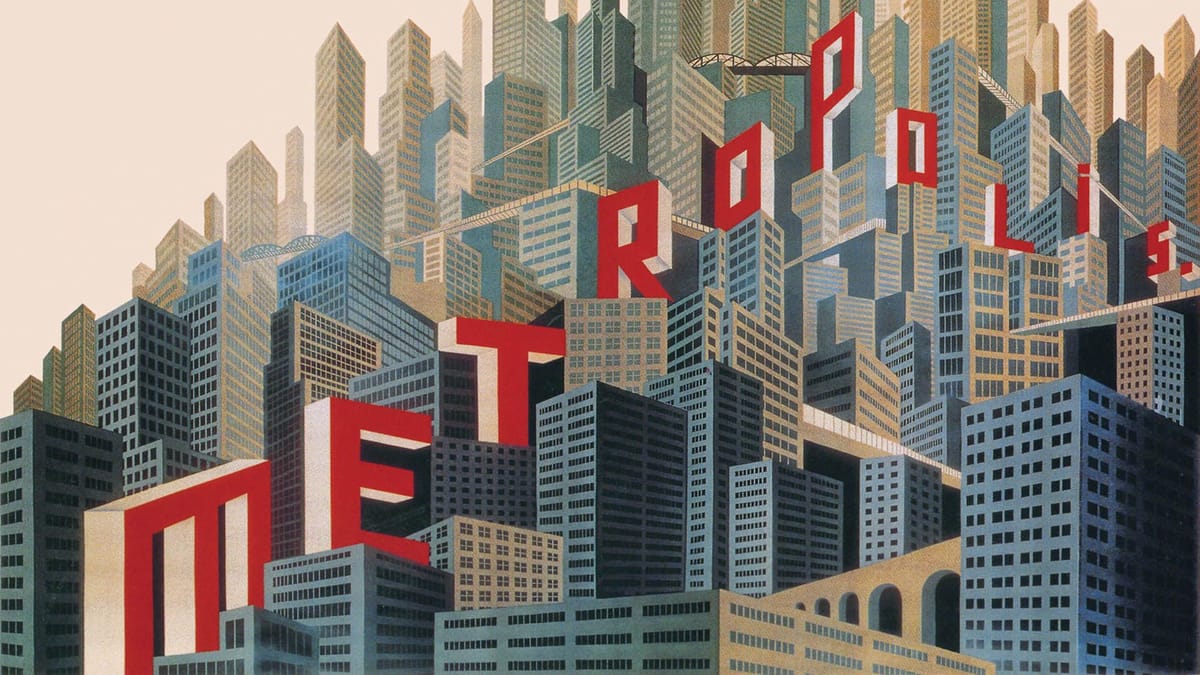Film Discussion 26: Metropolis (1927)

For past discussions, or to sign up for the next episode, visit benjaminbrandt.com/film-discussions
Josh, Nick, and TJ joined for our second discussion of a silent film, and I'm happy to report they liked it! We discuss what it means to have a well run Metropolis, the role of the head, hands, and heart and what happens when they stray from their jobs, what sin looks like in this film and much, much more.
As a side note, this is also the first episode we recorded strictly as a podcast, so the audio quality will hopefully be an improvement over the Google Hangouts. We're slowly making this thing better and better, so pardon any mistakes you find until we get all of the kinks ironed out :)
Show Notes
Roger Ebert on the power of the visual storytelling
“Metropolis” fixed for countless later films the image of a futuristic city as a hell of material progress and human despair. . . Lang's story is broad, to put it mildly. Do not seek here for psychological insights. The storytelling is mostly visual. Lang avoided as many intertitles as possible, and depends on images of startling originality. Consider the first glimpse of the underground power plant, with workers straining to move heavy dial hands back and forth. What they're doing makes no logical sense, but visually the connection is obvious: They are controlled like hands on a clock. When the machinery explodes, Freder has a vision in which the machinery turns into an obscene, devouring monster.
Chris Fujiwara on the gift that is the newly restored version of the film
Metropolis splits its heroine, Brigitte Helm’s iconic Maria, into two figures. One is a preacher of love who seeks to reconcile the ruling and the working classes. The other is a wanton robot on a mission of destruction. And just as there are two Marias, so there have long been two Metropolises. One is a mummified classic, hollowed out from endless recycling in film histories and in pop culture. The other is a Fritz Lang film with all the director’s visual complexity and drive (wedded to a Thea von Harbou script that, if it’s kitsch, is kitsch that soars).
Aaron Cutler on Lang's changing views of his own film
Lang was most interested in moments when his films’ main characters shifted from being classical heroes to modern ones—when they were revealed to be weak and vulnerable people whose personal desires led them to fight ruling forces that demanded that they stay in their place, and who even proved willing to go to their deaths declaring that they had been right.
Lang said late in life that he had disbelieved the thesis, preferring the thought of defying power to that of reconciling with it, and that he had regarded Metropolis with distrust until an encounter changed his mind. In the late 1960s, a little less than a decade after Lang had directed a film for the last time, he asked a group of university students what they thought the chief problem of modern society was. The response he received had been illustrated throughout his films, including Metropolis: People suffered in a society when it was run without a heart.




